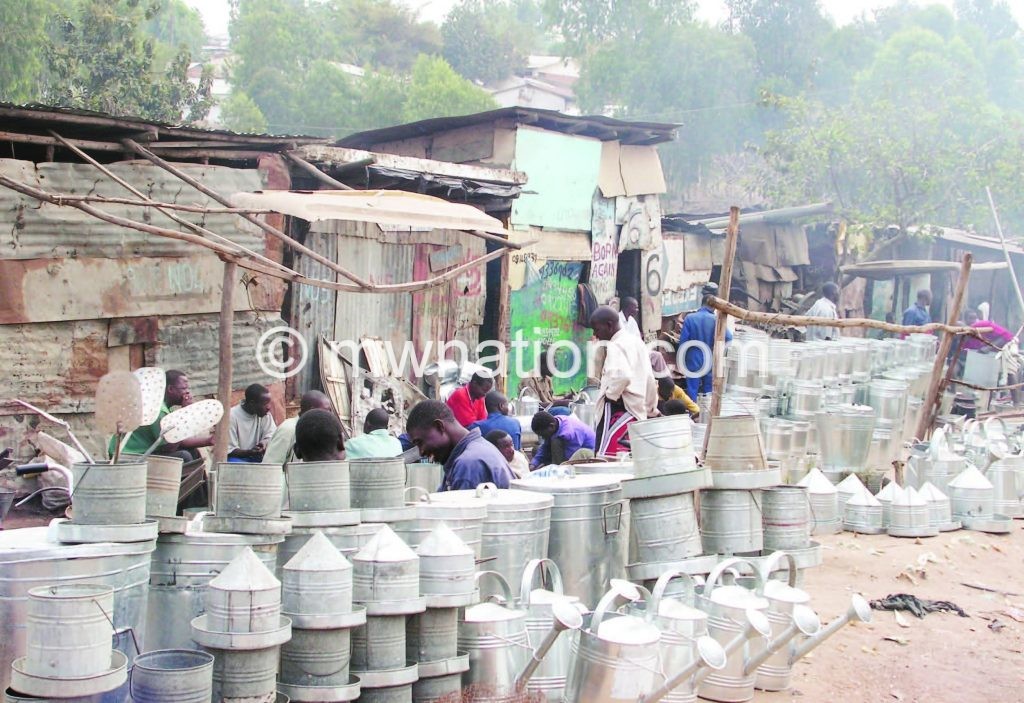Subdued economy sinks small businesses
Small and medium enterprises (SMEs) are being forced out of business amid a challenging macro-economic environment, Business Review has established.
A snap survey shows that what once used to be the hub of SMEs in the commercial city’s Blantyre Free Market is slowly being deserted, with few businesses thriving.

The same can be observed in Limbe Flea Market where most of the shops are almost depleted of goods as owners hope for improved macroeconomic conditions.
Such is the story of one Stella Chirambo, who has been plying her cross-border trade business for years, buying clothes and household items from Tanzania and South Africa to sell in Malawi.
However, she has opted out of her business venture, citing rising cost of doing business.
She said: “Every day, prices of goods are rising, so too the exchange rate is unstable. Since we can’t find forex on the official market, we get the same from the black market whose rates are quite high and not sustainable.
“In the end, we raise the prices of our goods and once we get them to the shops, it takes time to sell them and by the time we are ready to get another consignment and we find new and much higher prices.”
Chirambo said that at the black market, she buys a rand at K80 and a Tanzanian shilling at K1.45.
Meanwhile, the official exchange rate for a rand and a shilling is at K60 and K0.45, respectively.
While some business-friendly reforms in the country have been made to address some of the SME challenges, small businesses continue to struggle in their quest to scale up.
In 2020 and 2021, the impact of the Covid-19 on private sector businesses heightened the risks of bankruptcy and insolvency.
As if that is not enough, forex shortage remains acute amid rising inflation and cost of borrowing, fuelling scarcity which is pushing up prices.
Chamber for Small and Medium Enterprises Association executive secretary James Chiutsi said more businesses, especially those in import and export trade, are closing shop amid rising inflation and forex shortage.
“Their margins are being wiped out due to forex shortage as they go to the black market, but it’s expensive,” he said.
Chiutsi said that while import substitution is key to empowering SMEs, promoting small-scale industrialisation entails putting deliberate policies to improve access to finance.
Small Scale Business Operators Association of Malawi general secretary Tennyson Mulimbula said small businesses are failing to cope with the fluctuations of prices of various commodities.
He said: “The closing of shops owned by indigenous traders is happening due to high inflation, high interest rate and high exchange rate, which has reached an alarming stage and is being propelled by the depreciation of our local currency.
“As one way of mitigating these difficulties, the association has requested the finance minister to put in place policies that would help to stabilize the country’s economy.”
The 2019 Malawi FinScope MSME Survey estimates that there were almost 1.6 million MSMEs in the country, employing about 1.8 million people.
It is estimated that the MSME sector contributes about 40 percent of gross domestic product (GDP) and 24 percent of employment, and that about 21 percent of the country’s adult population derives their livelihood from the sector.
However, despite their number and potential to contribute more to the economy, the capacity of the MSMEs to expand remains low. Meanwhile, to curb the ongoing economic crisis government has initiated several policy measures including the introduction of foreign exchange auctions to facilitate price discovery, the passing of the Disaster Risk Management Bill and bolstering of a new Medium-Term Debt Strategy and an Annual Borrowing Plan in alignment with the Public Finance Management Act of 2022.





